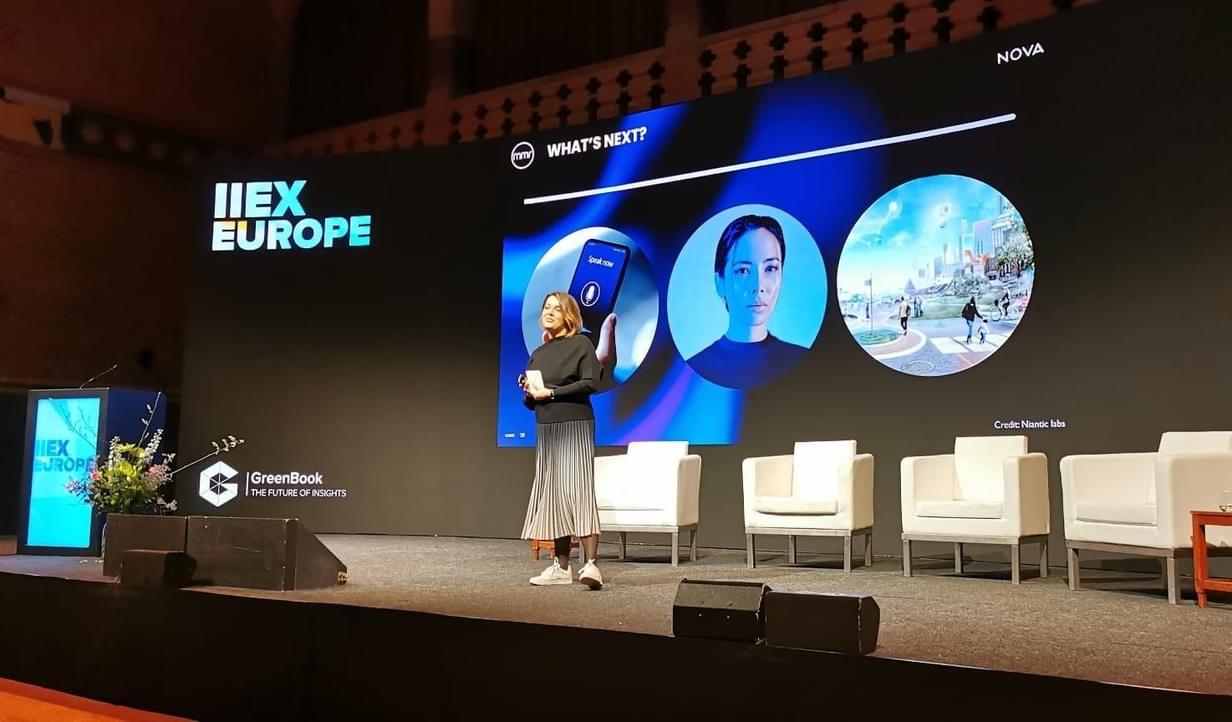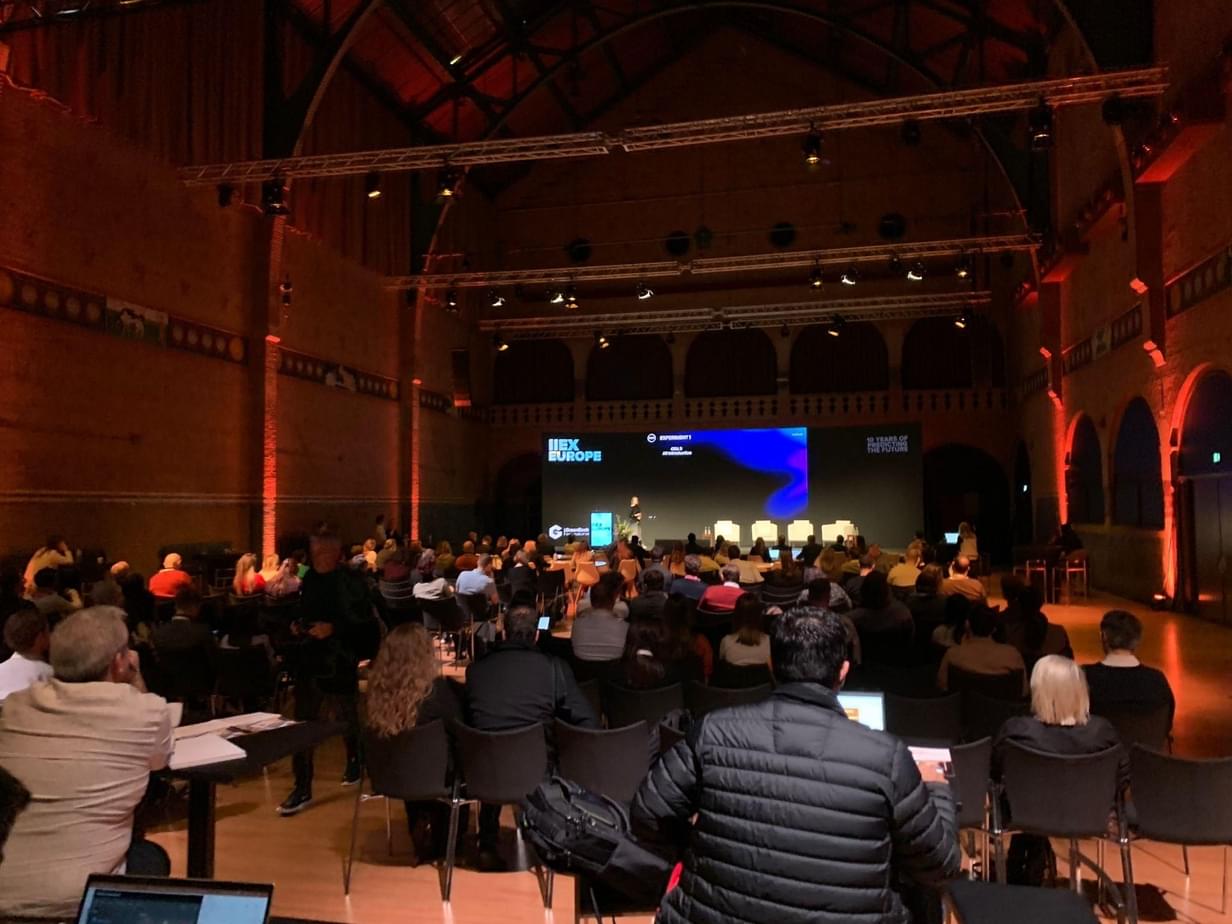New Study Reveals AI & AR Enhances Human Engagement & Unlocks Deeper Insight
As the world of quantitative research continues to evolve, emerging technologies such as Generative AI and Augmented Reality (AR) will play an increasingly important role in making consumer surveys more engaging. Whether it's through personalized experiences, immersive environments, or more efficient data analysis, these technologies are helping researchers unlock new insights and drive innovation in ways that were previously impossible.
The in-house NOVA tech innovation team at MMR partnered with Heineken to understand whether emerging technology can drive consumer engagement and deliver crucial additional insight. At the 2023 Greenbook’s IIEX Europe Conference, Innovation Consultant at MMR Research, Alexandra Kuzmina showcased findings from two cutting-edge experimental studies on the effective incorporation of Augmented reality (AR) holograms and Generative AI video avatars into quantitative consumer research online.
Current industry projections suggest that we could be on the verge of a participation crisis, with many people disengaging with traditional online survey formats making it difficult to gather quality insights. There is an expectation that ‘tech’ could provide the way forward, enabling more exciting survey experiences that truly connect with audiences, particularly younger demographics.

The first experiment incorporated a highly realistic AR-generated research professional into an online consumer survey. As participants began the survey they were met by an AR ‘avatar’ via the camera on their mobile devices - thereby rendering the ‘avatar’ into the participants' own surroundings, providing a highly personalized survey experience.
The second experiment used an AI-generated photorealistic synthetic actor that looks and sounds exactly like a real person. This technology creates a performance directly from a script, a process called text-to-video. This is possible thanks to Generative AI and neural video synthesis, through neural networks trained to reproduce the photorealistic look and movements of a synthetic “researcher”.
Both experiments revealed the positive impact of the tested emerging technologies on the perceived engagement levels of participants. Increased engagement translated into a significant boost in the average word count provided in response to an open-ended survey question.

Significantly, the second experiment revealed that the AI-powered avatar generated a 44% increase in the word count provided by participants. Moreover, the quality of the open-ended feedback shared was superior in comparison to more traditional ways of solicitation. This approach allowed MMR to provide Heineken with more actionable recommendations.
"Using AI in quantitative research has proved to be a game-changer in this study," says Alexandra. "Not only does it make the research process more exciting for participants, but it has shown to facilitate better decision-making and drive more impactful recommendations”.
Commenting on these findings, Sarah Smith, Head of MMR’s in-house innovation team, NOVA, added, “We believe that by focusing on the optimal use of AI technologies and fostering close collaboration with clients, researchers can unlock deeper insights and enhance the overall value of their market research efforts.”
By developing more engaging survey formats using emerging technologies, the market research industry can combat the participation crisis and ensure that businesses have access to the data they need to make informed decisions. This will require a willingness to innovate and experiment with new survey formats, as well as a focus on understanding and addressing consumers' needs and preferences.
To find more about how their brands can harness the benefits of these new technologies to enhance their market research investment, manufacturers can contact Alexandra Kuzmina at alexandra@nova-mmr.com